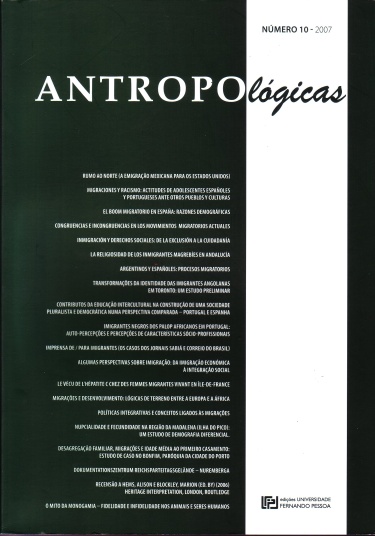Le vécu de l’hépatite C chez des femmes migrantes vivant en Île-de-France
Resumo
The living of hepatitis C among migrant women in Ile-de-France We interviewed four migrant women, from different cultural origins and infected with hepatitis C virus, in order to analyze the influence of social context and migratory course on the disease’s management. The condition of being a woman and the migrant’s statute can constitute factors worsening the living of the disease, because the degree of vulnerability and precariousness associated to being women and migrants is more important than within the population in general. The existence or absence of stigmatization and rejection, of support of the entourage and of access to health care are fundamental elements in living of hepatitis C disease and its treatment. The individuals from underprivileged classes are more vulnerable in facing the disease and they also are those whose propensity to take care of themselves is lower. In general, the immigrants are included in these groups of individuals.Downloads
Publicado
2012-07-17
Edição
Secção
Artigo de fundo
Licença
Autores que publicam nesta revista concordam com os seguintes termos:
- Autores conservam os direitos de autor e concedem à revista o direito de primeira publicação, com o trabalho simultaneamente licenciado sob a Licença Creative Commons Attribution que permite a partilha do trabalho com reconhecimento da autoria e publicação inicial nesta revista.
- Autores têm autorização para assumir contratos adicionais separadamente, para distribuição não-exclusiva da versão do trabalho publicada nesta revista (ex.: publicar em repositório institucional ou como capítulo de livro), com reconhecimento de autoria e publicação inicial nesta revista.
- Autores têm permissão e são estimulados a publicar e distribuir o seu trabalho online (ex.: em repositórios institucionais ou na sua página pessoal) a qualquer ponto antes ou durante o processo editorial, já que isso pode gerar alterações produtivas, bem como aumentar o impacto e a citação do trabalho publicado (Veja O Efeito do Acesso Livre).


